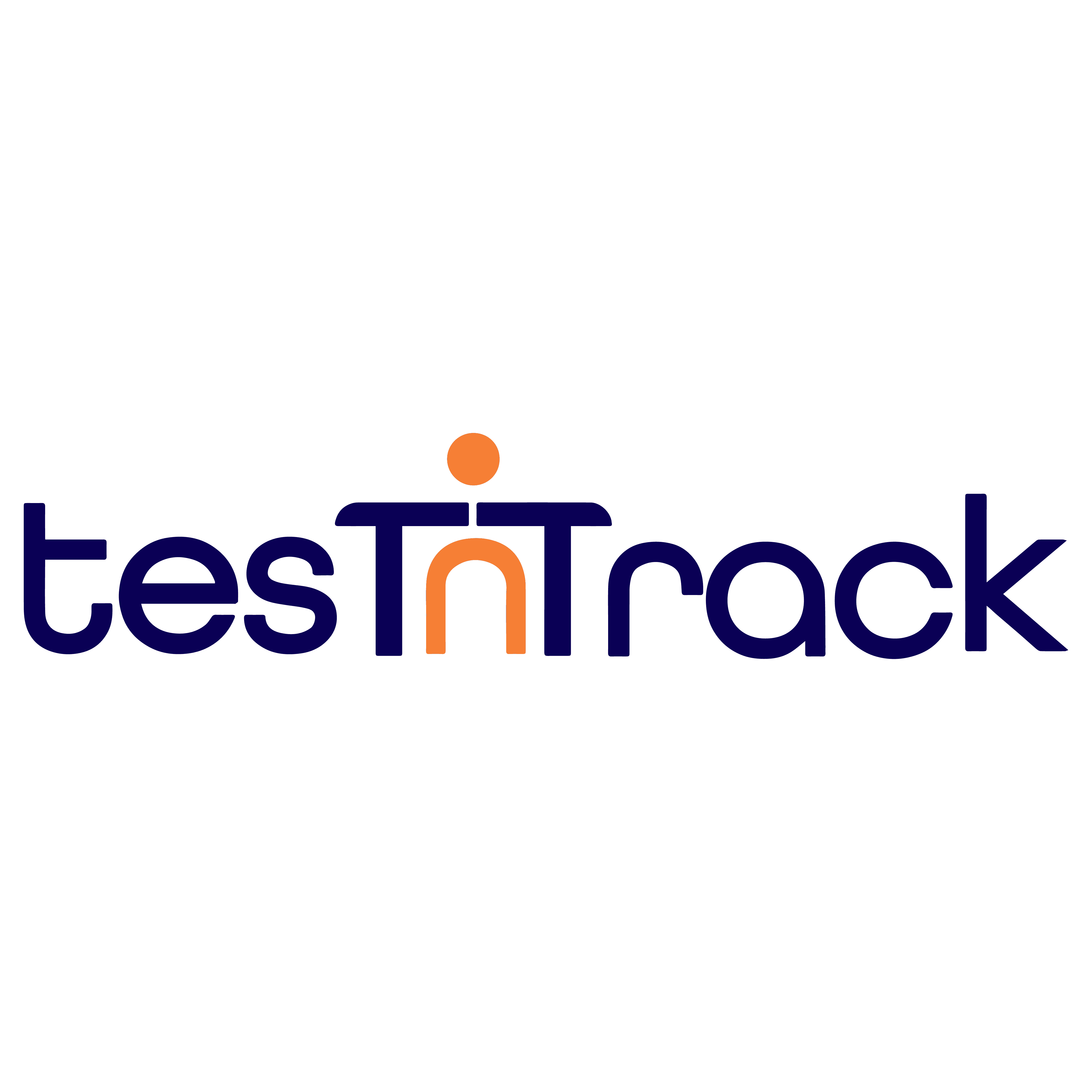Description

iMocha

Quilgo
Comprehensive Overview: iMocha vs Quilgo
iMocha
a) Primary Functions and Target Markets: iMocha is a skills assessment platform designed for human resources and corporate learning and development teams. Its key functions include:
- Skills Assessment: Providing a vast library of pre-employment tests to evaluate candidates' skills across various domains such as IT, finance, marketing, and more.
- Talent Analytics: Offering insights to HR and recruiting teams to make data-driven hiring decisions.
- Customizable Tests: Allowing companies to create personalized tests to match their specific hiring needs.
The target market for iMocha includes large enterprises, small and medium-sized businesses, and recruitment agencies that are looking for efficient and effective ways to streamline their hiring processes and validate candidate skills.
b) Market Share and User Base: iMocha operates in a competitive market with players like HackerRank, Codility, and others that focus on technical assessments. While exact market share data might not be publicly available, iMocha has been gaining traction due to its comprehensive library of tests and advanced analytics. Its user base includes several thousand companies across different sectors globally.
c) Key Differentiating Factors:
- Breadth of Test Library: iMocha boasts one of the largest test libraries, covering a wide range of skills and industries.
- AI-Powered Features: Advanced analytics and AI capabilities differentiate iMocha by providing deeper insights into candidate performance.
- Flexibility and Customization: Offers high levels of customization for creating tailored assessments to fit specific company needs.
Quilgo
a) Primary Functions and Target Markets: Quilgo is a platform primarily focused on turning Google Forms into timed quizzes and tests. Its main functionalities include:
- Timer and Proctoring: Adding timers to Google Forms, enabling time-bound assessments.
- Security Features: Offering video proctoring features for monitoring test-takers and maintaining the integrity of remote assessments.
- Integration: Seamlessly integrates with Google Workspace, making it accessible for users already familiar with the Google ecosystem.
Quilgo targets educational institutions, instructors, and corporate trainers who need straightforward tools to conduct secure and timed online exams or quizzes.
b) Market Share and User Base: Quilgo occupies a niche market where it serves users who primarily rely on Google Forms for assessments. While not as expansive as dedicated skills assessment platforms, Quilgo has carved out a niche through its simplicity and effective integration with Google tools. It is used by multiple educators and trainers who prioritize ease of use and affordability.
c) Key Differentiating Factors:
- Integration with Google Forms: Offers a unique value proposition through its integration, simplifying the process for existing Google users.
- Ease of Use: Quilgo stands out due to its user-friendly interface and quick setup, appealing to users who want a simple, efficient solution.
- Focused Features: While it may not have the extensive capabilities of a full-fledged assessment platform like iMocha, its focus on time management and security makes it suitable for educators seeking basic assessment enhancements.
Comparison
While iMocha and Quilgo both operate in the assessment space, they cater to different needs and markets. iMocha appeals to businesses looking for a broad and sophisticated assessment solution with deep analytics, whereas Quilgo provides a straightforward, tool-based approach to those requiring simple, timed assessments integrated with Google Forms. The choice between the two would largely depend on the complexity and scale of the assessment needs of the user.
Contact Info

Year founded :
2015
+1 408-759-4457
Not Available
United States
http://www.linkedin.com/company/imocha

Year founded :
2018
Not Available
Not Available
United Kingdom
http://www.linkedin.com/company/quilgo
Feature Similarity Breakdown: iMocha, Quilgo
As of my last update, both iMocha and Quilgo are tools used in the context of assessments and testing, although they have different primary focuses and feature sets. Here's a breakdown based on available features:
a) Core Features in Common:
-
Assessment Creation: Both iMocha and Quilgo offer functionalities to create customized assessments or tests tailored to specific requirements.
-
Timer Functionality: They both provide options to add time constraints to tests, ensuring that assessments are conducted under timed conditions which is crucial for certain testing environments.
-
User Management: Both platforms allow management of test-takers, such as inviting users to take tests and tracking their progress.
-
Reporting & Analytics: Each offers reporting features to analyze test outcomes, though the depth and sophistication might vary.
b) User Interface Comparison:
iMocha:
- Design and Navigation: iMocha's UI is designed primarily for enterprise use, often reflecting a polished, corporate aesthetic. The interface is largely driven by menus and dashboards, making it straightforward for professional HR or recruitment settings.
- User Experience: It emphasizes ease of use in terms of creating and managing large volumes of tests, typically used by recruitment professionals. Its focus is on streamlining test administration and result analysis.
Quilgo:
- Design and Navigation: Quilgo is designed with simplicity in mind, often appealing to individual educators or small institutions.
- User Experience: The interface tends to be more straightforward and intuitive, which caters well to users who have simpler needs or those who integrate it with platforms like Google Forms. Its strength lies in its simplicity and ease of integration with existing workflows.
c) Unique Features:
iMocha:
- Skill Library & Pre-built Tests: iMocha has a large library of pre-built skill assessments, allowing users to quickly utilize tests without creating them from scratch. This can be particularly advantageous for organizations looking to assess a wide range of skills.
- AI-Powered Analytics: Offers advanced analytics powered by AI to provide deeper insights into candidate skills, strengths, and areas for improvement.
Quilgo:
- Google Forms Integration: Quilgo is known for its tight integration with Google Forms, allowing users to transform Google Forms into proctored exams with ease. This feature is particularly useful for educators or institutions that already rely heavily on Google Workspace.
- Webcam Monitoring: Supports webcam monitoring during tests to ensure test integrity, which can be crucial for online proctoring requirements.
In summary, while iMocha and Quilgo share basic assessment capabilities, they differ significantly in their target audience and additional features, with iMocha offering enterprise-level functionalities and advanced analytics, while Quilgo emphasizes simplicity and integration with Google Forms for broader accessibility.
Features

Skill Assessment
User-Friendly Interface
Data-Driven Insights
Integration and Scalability
User Management

Efficient Test Management
Enhanced User Experience
Secure and Reliable
Best Fit Use Cases: iMocha, Quilgo
iMocha
a) Best Fit Use Cases for iMocha:
iMocha is primarily a skills assessment platform designed for hiring and talent development. It is beneficial for:
-
Technology Companies: iMocha offers a vast library of assessments in programming, IT, AI, Data Science, and other tech areas, making it ideal for tech firms needing to evaluate and validate technical skills effectively.
-
Large Enterprises: Enterprises can leverage iMocha's platform to streamline and standardize hiring practices across departments and global offices, ensuring consistency and quality in candidate assessments.
-
Recruitment Agencies: These agencies can use iMocha to assess candidates quickly and present vetted talent to their clients, improving the quality of hires.
-
Educational Institutions: Universities and colleges can use iMocha for certifying students' skills or for placement readiness evaluations, ensuring their curriculum is meeting industry demands.
-
Training Providers: Organizations offering professional development and upskilling services can use iMocha to measure the impact of their training programs and adapt them according to skill gaps.
d) Industry Verticals and Company Sizes:
iMocha caters to a wide array of industries including tech, finance, healthcare, and manufacturing, focusing on organizations with a continual need for skilled talent acquisition and development. It is scalable, serving both startups and multinational corporations due to its customizable assessment features and comprehensive reporting capabilities.
Quilgo
b) Preferred Scenarios for Quilgo:
Quilgo is a tool designed to enhance Google Forms with time tracking capabilities and other features, making it suitable for:
-
Educational Institutions: Schools and universities can use Quilgo to conduct timed quizzes and exams, ensuring a standardized testing environment and reducing the likelihood of dishonesty.
-
Professional Certification and Training: Organizations offering certification programs can ensure assessments are completed within designated times, adding rigor and legitimacy to the certification process.
-
Consulting Firms: These firms can use Quilgo to administer assessments to gauge a client's capabilities or improvement areas, using timed tests for more accurate skill assessment.
d) Industry Verticals and Company Sizes:
Quilgo is versatile enough to be used across various industries, especially where compliance and certification testing are essential, like finance, legal services, and professional training sectors. It is particularly beneficial for small to medium-sized enterprises (SMEs) or educational institutions that leverage Google Workspace for their operations and require a straightforward solution for timed assessments without investing heavily in standalone testing software.
Overall, iMocha is best for comprehensive skills assessment in large-scale or technically-driven recruitment processes, whereas Quilgo enhances Google Forms with time-based testing ideal for educational settings and certification needs.
Pricing

Pricing Not Available

Pricing Not Available
Metrics History
Metrics History
Comparing teamSize across companies
Conclusion & Final Verdict: iMocha vs Quilgo
To provide a conclusion and final verdict on iMocha and Quilgo, we need to evaluate them based on several key factors such as features, pricing, ease of use, customer support, scalability, and suitability for the intended use case. Here is a detailed analysis:
a) Best Overall Value
iMocha: iMocha is a comprehensive skills assessment platform, offering a wide range of tests and features tailored to recruit and upskill talent. It provides in-depth analytics, customizable tests, and extensive support for various technical and soft skills. Its robust feature set aimed at improving recruitment processes makes it favorable for organizations focused on large-scale hiring and detailed skills analysis.
Quilgo: Quilgo integrates with Google Forms to provide a simple yet effective way to manage timed assessments. It is suitable for organizations or educators needing a straightforward solution to monitor time-bound tests without additional complexities or features beyond what's necessary for exam administration.
Best Overall Value: The best value would typically depend on the specific needs of the user. However, for organizations especially focused on comprehensive recruitment and skills analysis, iMocha may offer more value due to its extensive feature set and capabilities. For educational settings or small organizations interested in basic timed testing without much complexity, Quilgo could be more cost-effective and straightforward.
b) Pros and Cons
iMocha Pros:
- Extensive range of skill tests.
- Customizable assessments.
- Detailed analytics and feedback.
- Strong customer support.
iMocha Cons:
- Can be expensive for smaller organizations.
- May have a steeper learning curve due to its extensive features.
Quilgo Pros:
- Integrates easily with Google Forms.
- Simple and intuitive to use.
- Cost-effective for basic timed assessments.
Quilgo Cons:
- Limited to timed test functionalities.
- Depends on Google Forms for core functionalities.
- Lack of advanced features for detailed skills analytics.
c) Specific Recommendations
-
Assess Your Needs: Determine whether your primary goal is comprehensive skills assessment and recruitment (favoring iMocha), or simpler timed testing for educational purposes (favoring Quilgo).
-
Consider Your Budget: Analyze your budget constraints. iMocha is more suitable for larger budgets where detailed recruitment analytics add value. Quilgo serves well for smaller budgets focused on basic timed testing.
-
Evaluate Ease of Use: If ease of use is a critical factor, especially for non-technical users, Quilgo offers a less complex setup with Google Forms integration.
-
Think About Scalability: For organizations planning to scale their recruitment processes significantly, iMocha’s robust features support growth better than Quilgo's more limited scope.
-
Trial Both Products: If still undecided, utilize any available trials to personally gauge which product aligns best with your workflow and requirements.
In conclusion, both iMocha and Quilgo serve distinct purposes with their own strengths and weaknesses, and the choice should be closely aligned with the specific needs and strategic goals of the user or organization.
Add to compare
Add similar companies




